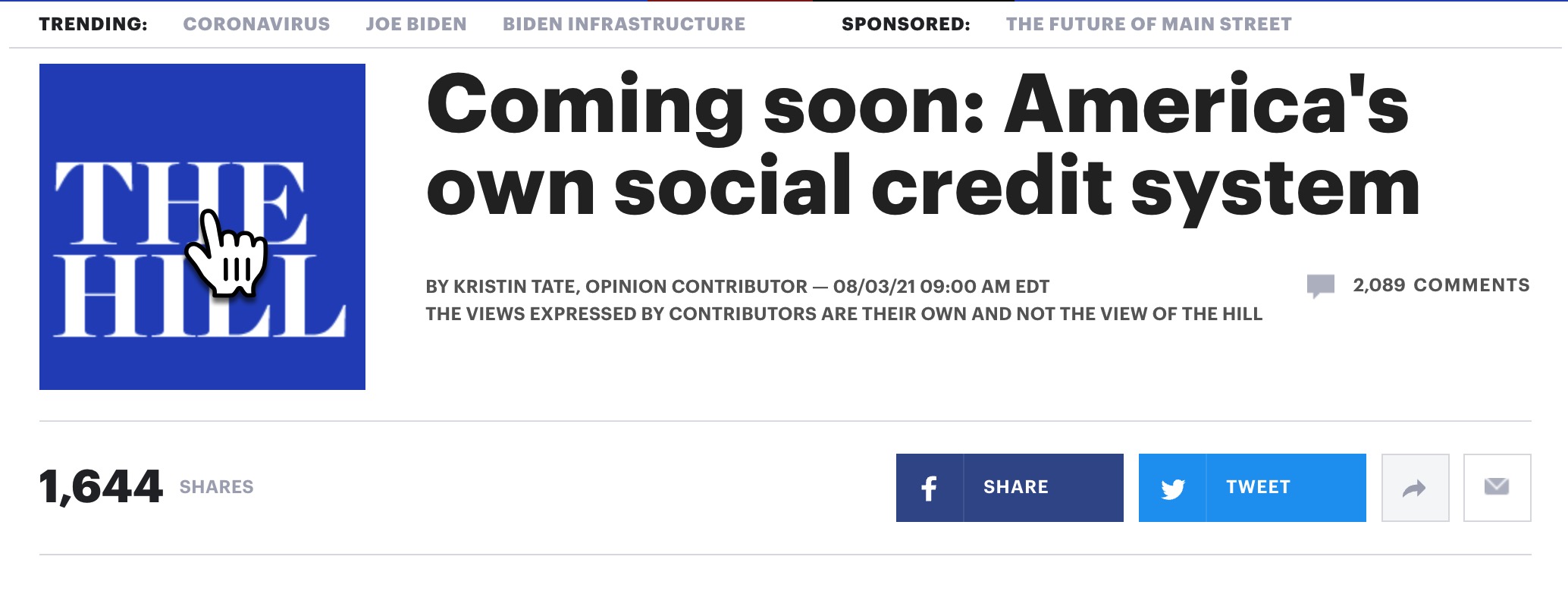Last week, PayPal announced a partnership with the left-wing Southern Poverty Law Center to “investigate” the role of “white supremacists” and propagators of “anti-government” rhetoric, subjective labels that potentially could impact a large number of groups or people using their service. PayPal says the collected information will be shared with other financial firms and politicians. Facebook is taking similar measures, recently introducing messages that ask users to snitch on their potentially “extremist” friends, which considering the platform’s bias seems mainly to target the political right. At the same time, Facebook and Microsoft are working with several other web giants and the United Nations on a database to block potential extremist content.
The actions of these major companies may seem logical in an internet riddled with scams and crime. After all, nobody will defend far-right militias or white supremacist groups using these platforms for their odious goals. However, the same issue with government censorship exists with corporate censorship: If there is a line, who draws it? Will the distinction between mundane politics and extremism be a “I’ll know it when I see it” scenario, as former Supreme Court Justice Potter Stewart described obscenity? If so, will there be individuals able to unilaterally remove people’s effective ability to use the internet? Could a Facebook employee equate Ben Shapiro with David Duke, and remove his account?
The implications of these crackdown efforts will be significantly more broad than just prohibiting Donald Trump from tweeting at 3 a.m. Young people cannot effectively function in society if blocked from using Facebook, Twitter, Gmail, Uber, Amazon, PayPal, Venmo and other financial transaction systems. Some banking platforms already have announced a ban on certain legal purchases, such as firearms. The growth of such restrictions, which will only accelerate with support from (usually) left-wing politicians, could create a system in which individuals who do not hold certain political views could be blocked from polite society and left unable to make a living. — Read the Complete Op-Ed on the Hill

Coming soon: America’s own social credit system
Fair Use Notice:This site contains copyrighted material the use of which has not always been specifically authorized by the copyright owner. We are making such material available in our efforts to advance understanding of environmental, political, human rights, economic, democracy, scientific, and social justice issues, etc. We believe this constitutes a 'fair use' of any such copyrighted material as provided for in section 107 of the US Copyright Law. In accordance with Title 17 U.S.C. Section 107, the material on this site is distributed without profit to those who have expressed a prior interest in receiving the included information for research and educational purposes. For more information go to: http://www.law.cornell.edu/uscode/17/107.shtml. If you wish to use copyrighted material from this site for purposes of your own that go beyond 'fair use', you must obtain permission from the copyright owner.
